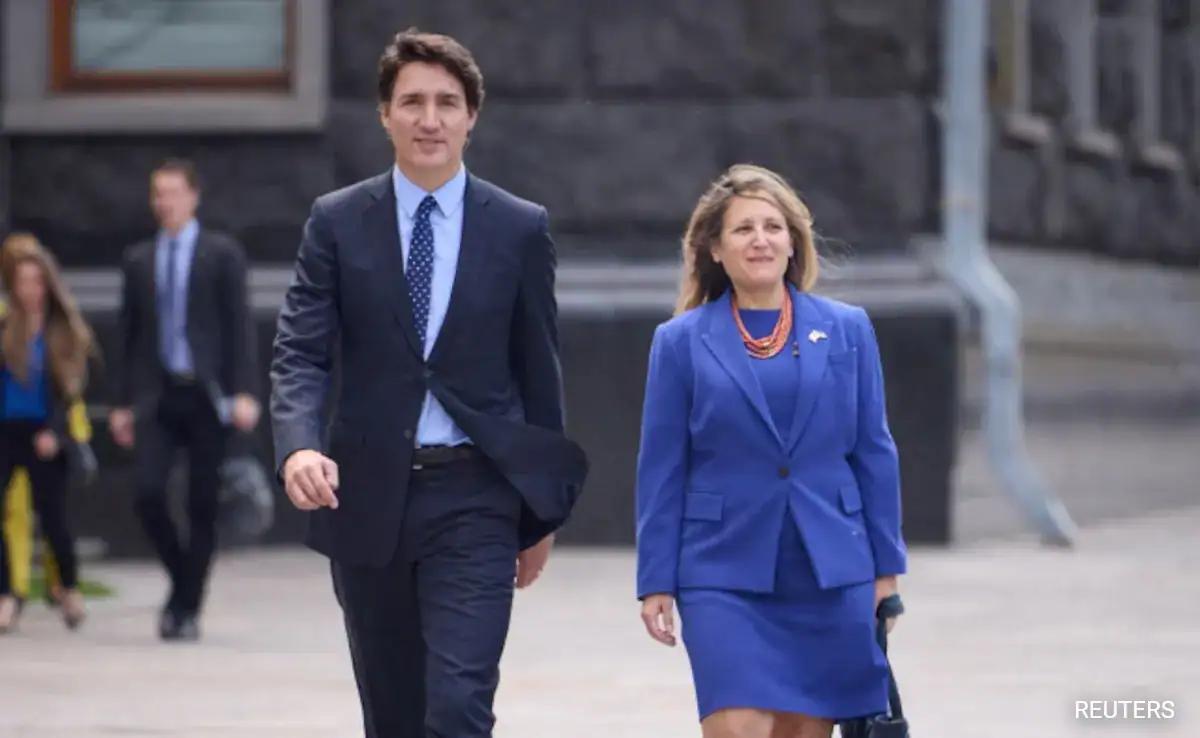Canada Deputy PM Chrystia Freeland Resigns Following Disagreement with Trudeau Over Tariff Policy
Chrystia Freeland, Canada’s Deputy Prime Minister and Finance Minister, has announced her resignation following a reported fallout with Prime Minister Justin Trudeau over tariff-related disputes. Freeland, a key figure in Canada’s government, cited “deep differences” in policy decisions as the primary reason for her decision, marking a significant shift in the country’s political landscape.
The resignation comes amid heightened tensions between Canada and the United States, with the Biden administration recently threatening to impose tariffs on Canadian exports, including aluminum and lumber. Freeland, known for her expertise in international trade and negotiations, reportedly clashed with Trudeau over the government’s approach to addressing these threats.
Sources close to the matter suggest that Freeland advocated for a more proactive and conciliatory strategy to avoid an escalation in trade tensions, while Trudeau favored a firm stance. The disagreement reportedly reached a breaking point during recent cabinet discussions, leading Freeland to step down from her dual roles.
In her resignation statement, Freeland said, “I have always believed in collaborative leadership and pragmatic policymaking. Unfortunately, recent differences have made it clear that I can no longer effectively serve in this government.” She thanked her colleagues for their support and pledged to continue working for Canada’s prosperity from outside the government.
Freeland’s departure has sent shockwaves through Canada’s political circles, given her pivotal role in shaping the country’s economic policies during challenging times, including the COVID-19 pandemic and the U.S.-Canada-Mexico Agreement (USMCA) negotiations. Her resignation raises questions about the stability of Trudeau’s government and its ability to navigate complex trade and economic challenges.
Political analysts believe Freeland’s exit underscores deeper divisions within the Liberal Party over its handling of Canada’s relationship with the U.S. As one of the most influential figures in Canadian politics, Freeland was seen as a bridge between Ottawa and Washington, leveraging her diplomatic skills to maintain strong cross-border ties.
Opposition leaders have seized the opportunity to criticize Trudeau’s leadership, with Conservative Party leader Pierre Poilievre accusing him of mismanaging Canada’s trade relations and creating internal discord. “This resignation is proof that Trudeau’s government is falling apart,” Poilievre said, adding that Freeland’s departure signals a lack of unity and direction within the cabinet.
Meanwhile, international reactions have been mixed. Some U.S. officials have expressed concern about the implications of Freeland’s resignation on future trade negotiations. Others view it as an opportunity to reset bilateral relations with a new approach from Canada’s leadership.
Prime Minister Trudeau has yet to announce a replacement for Freeland, but he acknowledged her contributions in a brief statement, calling her “an invaluable member of the team.” He added, “While we may not always agree, Chrystia’s dedication to Canada is unwavering, and her legacy will endure.”
As Canada faces mounting economic challenges, including the threat of tariffs, Freeland’s resignation adds another layer of uncertainty to an already complex situation. Observers now await Trudeau’s next move to stabilize his government and address the growing concerns over Canada’s economic future.
Freeland’s resignation, while signaling a significant political shift, also highlights the pressures and complexities of modern governance in an interconnected world. Whether her departure will lead to a shift in Canada’s trade policies or further destabilize Trudeau’s administration remains to be seen.
